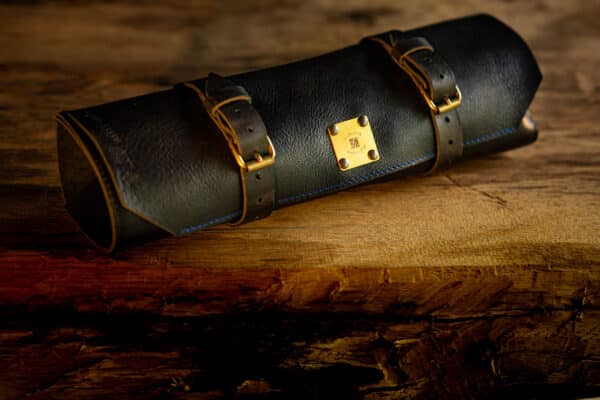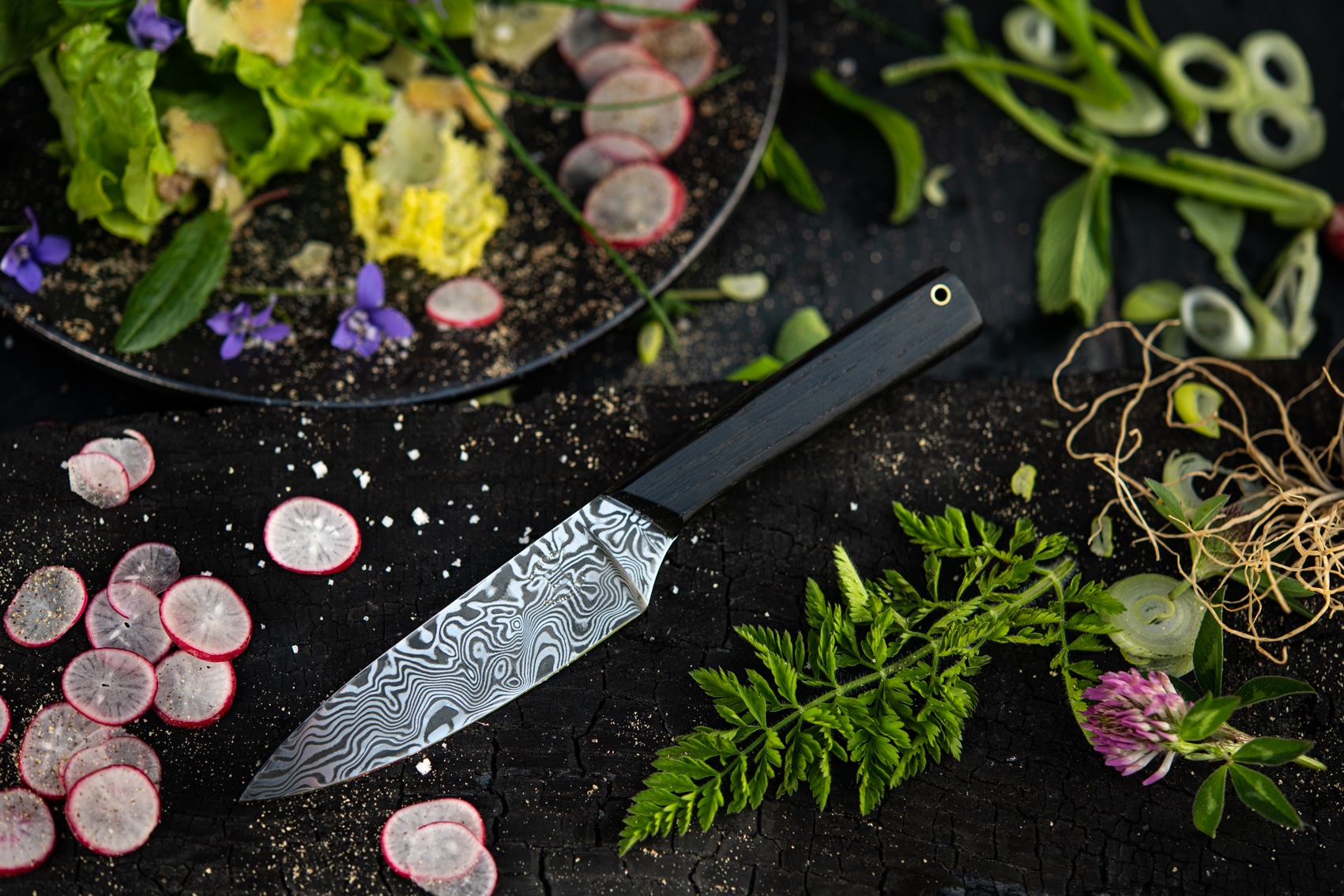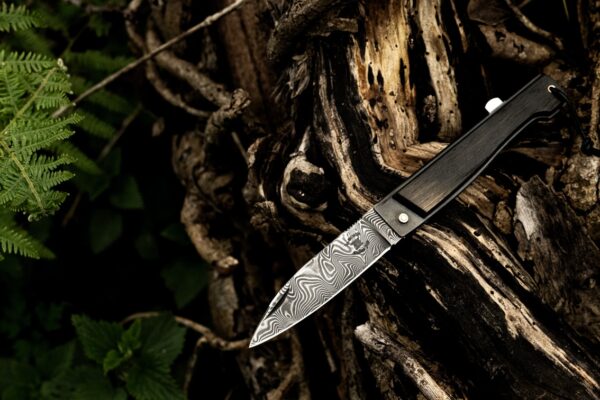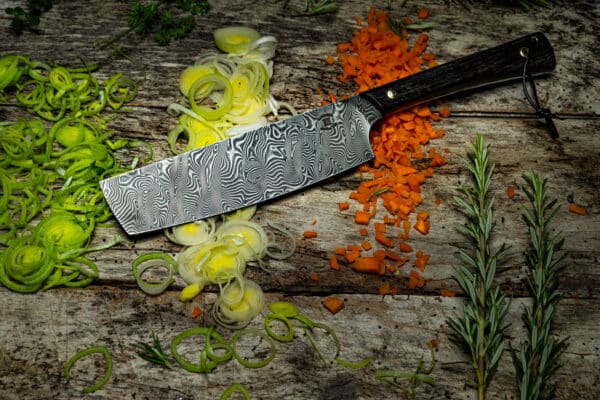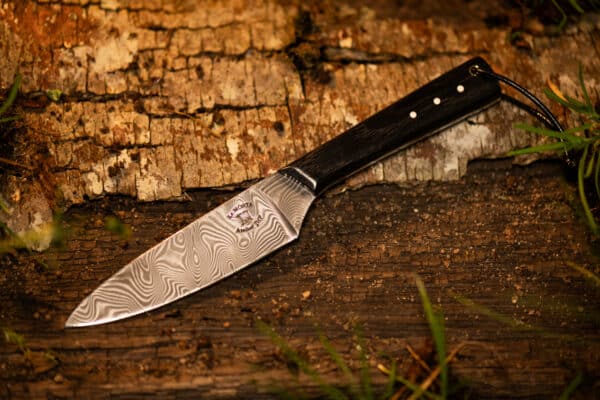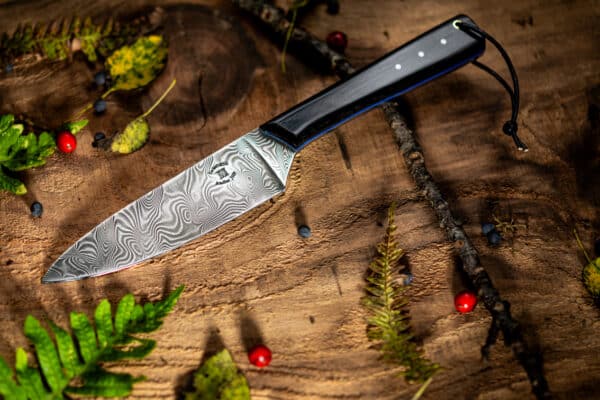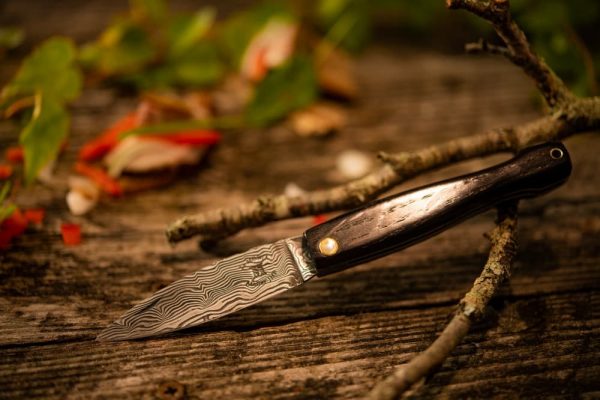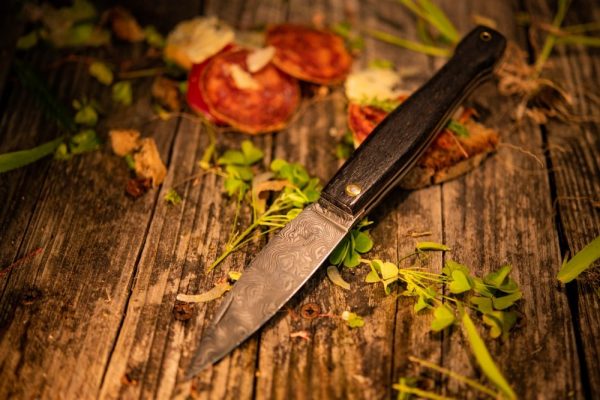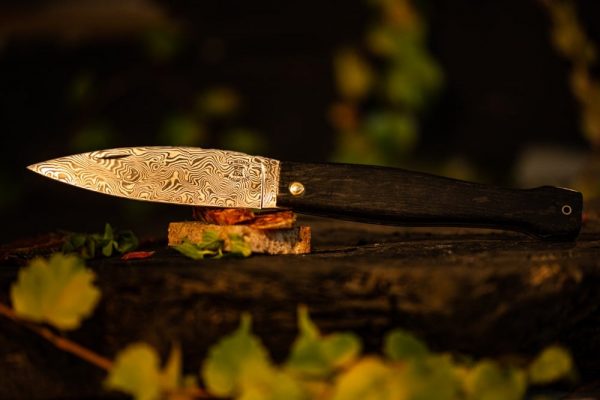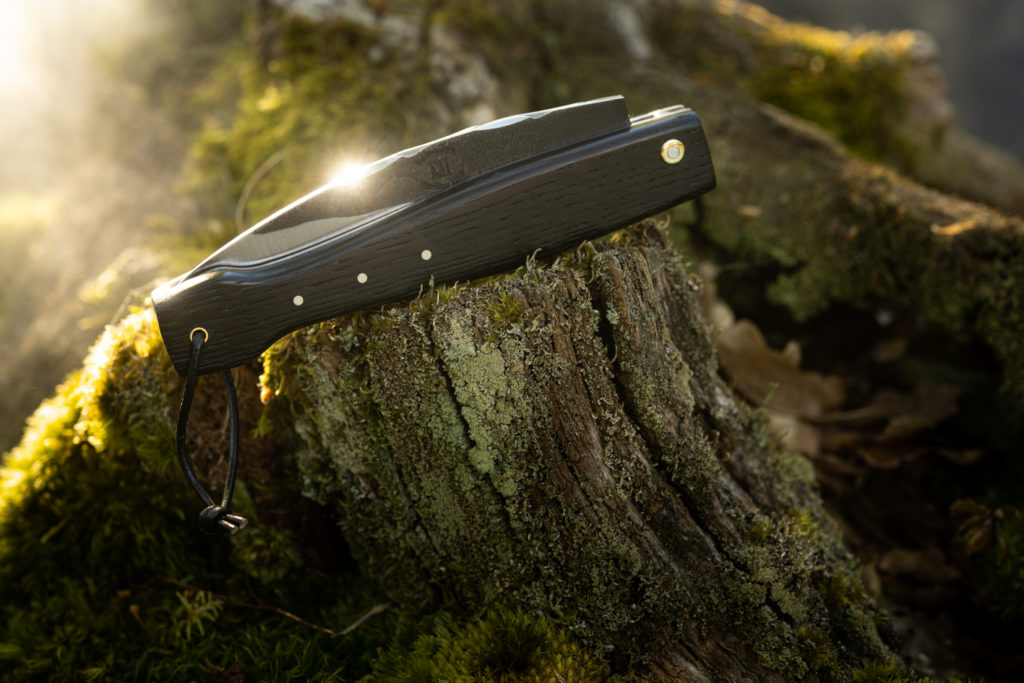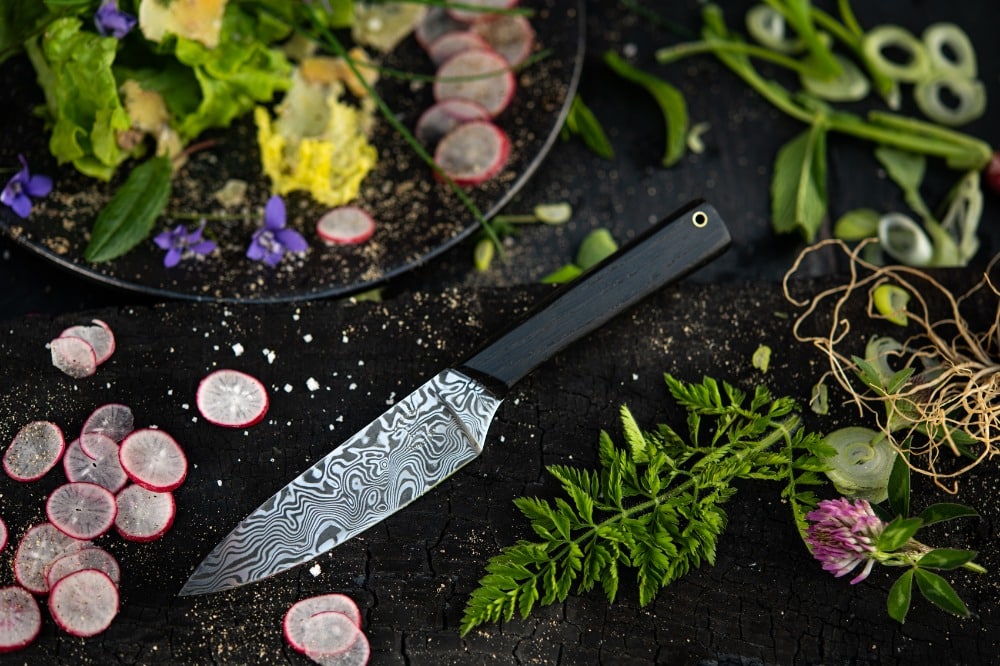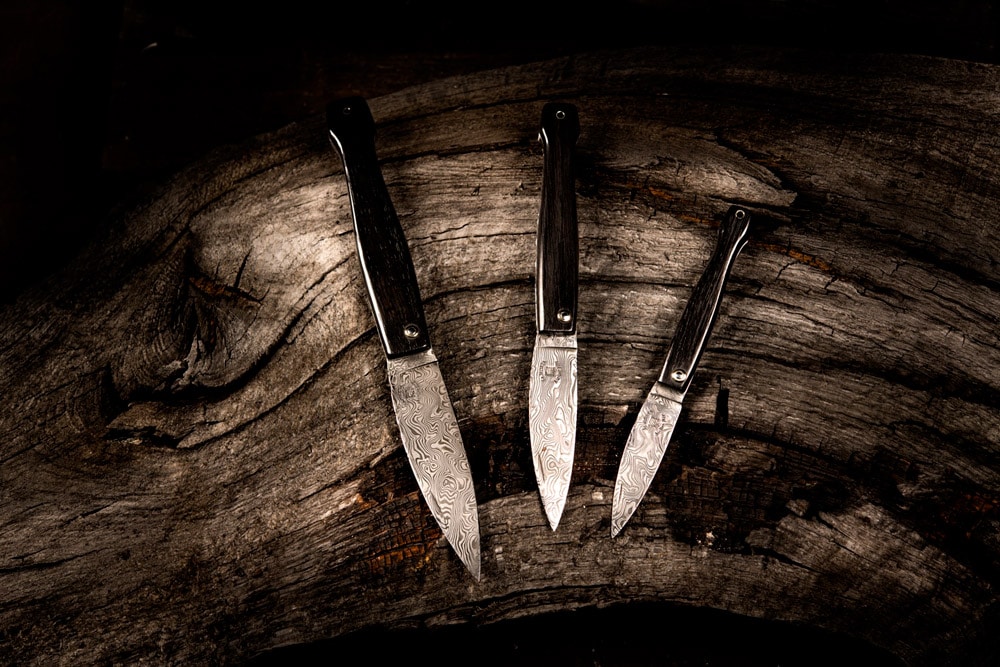Nothing could be easier. A whetstone or sharpening steel will perfectly sharpen the Damascus blade edge for optimal sharpness, respecting the quality of the stainless steel. To clean it, use a small amount of soapy water and dry with a kitchen towel or dry cloth. Conversely, the Morta handle prefers to avoid contact with water. After 5,000 years buried in the Brière peat, it is understandable that this precious wood longs for a life of labour far from any humidity.
The stone is on sale on this website. You will find it with the other accessories for your knife.
